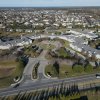As two former Delaware public servants with over a combined 75 years of experience in Delaware government, spanning the executive, legislative and judicial branches, we are concerned with the state of our state as it faces the challenges of 2020. Delaware needs to address the effects of the COVID-19 pandemic, the highest number of unemployed people in our history as well as structural issues in government and taxation. Decisions made this year will significantly alter how Delawareans live in the coming decades. Those decisions should be made through a process that meets both the letter and the spirit of our sunshine laws.
We come from different political parties and we have different views on many issues. During our public service careers, we have debated those issues. In many cases compromise was possible, and we could join to support positive change. When we did this, the process was aired publicly in legislative and administrative hearings. The media covered those public hearings and the process was open. Investigative reporters sought out dissenting views, reported on them and uncovered improprieties where they existed. Today Delaware faces unprecedented challenges, and yet there is little public discussion of the steps to be taken to address these matters. The People’s Hall aka Legislative Hall, Dover, is closed to the public.
As an example of decisions to come, it appears that the governor and one judge have determined that there must be a reassessment of the value of real property for tax purposes. Any reassessment will have serious tax and property value implications for everyone who owns a home, a business property, etc. This reassessment will most impact those middle-class families whose most significant asset is their home. Historically, a rise in real estate taxes may be accompanied by a decrease in the actual value of the property. Just as in the catastrophic real estate collapse of 2008, middle-class homeowners could be forced from their homes. How to conduct a reassessment, limit the size of tax increases and/or seek alternative funding for schools should be publicly debated to allow for input from the public. Many of these impacted homeowners have been negatively affected by COVID-19 already and may not be able to bear a tax increase as well.
Delaware spends a considerable amount of money on our schools. Yet we have many schools that do not seem to be producing great results. We need a public debate on the future of education in Delaware, for the quality of education will determine the future of Delaware. We also need to decide how to enhance the important role of vocational education in our system. Our public education system has record numbers of “lost learners” in our poverty Census Tracts.
A recent article in the News Journal indicated significant discrepancies in the reported statistics of COVID-19 cases at long-term care facilities in Delaware. Those statistics came from the CDC, but who was responsible for reporting them to the CDC? What steps has the state taken to assure the safety of the most vulnerable persons residing in these facilities? Should there be public hearings where state officials report and can be questioned as to their actions to provide safe facilities? Has recent legislation defining these facilities as part of the hospital regulatory scheme negatively impacted the number and scope of compliance inspections? We note that in September 2019, a new director was appointed to be responsible for inspections and enforcement over long-term care and assisted living facilities. That new director had previously served as executive director and lobbyist for the Delaware Health Care Facilities Association (Organization of Owners of Health Care Facilities) for 25 years. Was this the best appointment to oversee regulation of those facilities? Was there public input into this important decision?
The state has taken steps to reduce the population in our prison facilities in response to COVID. Have those steps been discussed publicly? How is the decision made as to who is released? Is the public to be made aware of who has been released? Do the courts have any input into this process?
While considering prisons, we should be having reports on steps taken relating to criminal justice reform. When Delaware first reformed its sentencing system in the 1980s, it required reports be made to the General Assembly as to the impact of that reform. It required that the system be accountable to the public. Recent changes should be subject to evaluation and reporting. Likewise, reports should be publicly available for discussion on the steps taken to address the problems that gave rise to our serious prison riot that resulted in the death of Lt. Steven Floyd.
What steps is the state taking to assist a high of nearly 100,000 unemployed Delawareans to find jobs? How will the state unemployment insurance system continue to fund payments when federal assistance is reduced or ends? This should be discussed openly, and planning should be occurring now. We are sure that the government is creating a plan, but the people should be aware of that and provided an opportunity for input.
This is an election year. It is now nearing the end of the legislative session. Yet we have seen little public discussion of state-level candidates and what their positions are on the critical issues facing our state this year.
We know that there will be pressure to raise taxes to address any serious budget deficits that may arise from the impact of COVID-caused unemployment, loss of business revenue, costs of providing for public safety and health. This needs to be addressed now and should be the subject of rigorous public debate. While we may not agree on specific resolutions, we do agree that the Legislature must address this now. There is little time between now and the end of the legislative session.
We fear that because of the COVID-19 situation, because of the lack of investigative reporting, because of the influence of lobbyists, and because of the lack of challenges by an active minority party, extremely important decisions will be made by the government and the Legislature with little input from the people who will be impacted by those decisions. The governor’s State of Emergency Declaration should not provide an excuse and legal argument to lock out the people from the decision-making process and to prevent the sun from shining upon our state’s politicians as they tackle these serious issues.























































